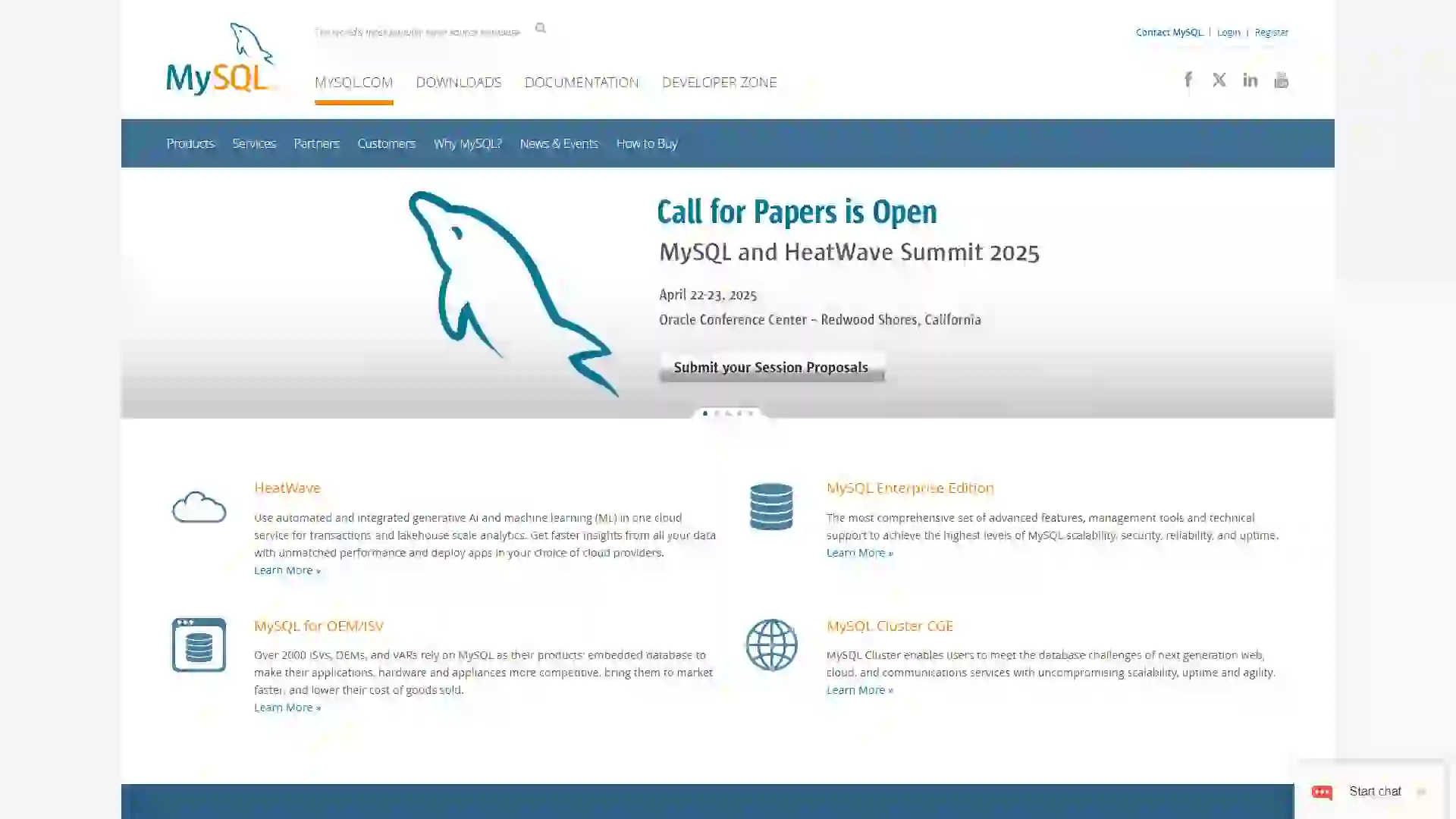- Home
- Development
- MySQL
MySQL
Summary
MySQL is the most popular open-source relational database, widely used in web application development. It supports multiple storage engines, offering high performance, reliability, and ease of use, making it the preferred database solution for developers and enterprises.
Features
- High Performance: MySQL provides efficient data processing capabilities through optimized queries and indexing mechanisms, making it suitable for high-concurrency scenarios.
- Multiple Storage Engine Support: Supports various storage engines such as InnoDB and MyISAM, catering to different application needs.
- Open Source and Free: MySQL is open-source software, allowing users to use and modify it for free, reducing development costs.
- Cross-Platform Support: Compatible with multiple operating systems, including Windows, Linux, and macOS, facilitating deployment and migration.
Use Cases
- Web Application Development: MySQL is a core component of the LAMP and LEMP technology stacks, widely used in dynamic websites and web applications.
- Data Analysis: Supports complex queries and data processing, making it suitable for data warehousing and business intelligence applications.
- Embedded Systems: Its lightweight nature makes it ideal for embedding in mobile applications and IoT devices.
- Enterprise Applications: Offers high availability and data security, making it suitable for critical business systems in finance, e-commerce, and more.
Drawbacks
- Performance Bottlenecks: Performance may lag behind certain NoSQL databases when handling extremely large-scale data.
- Complexity: Advanced features such as replication and partitioning require a higher level of technical expertise.
- Limited Community Support: Compared to commercial databases, community support may be less timely and professional.
